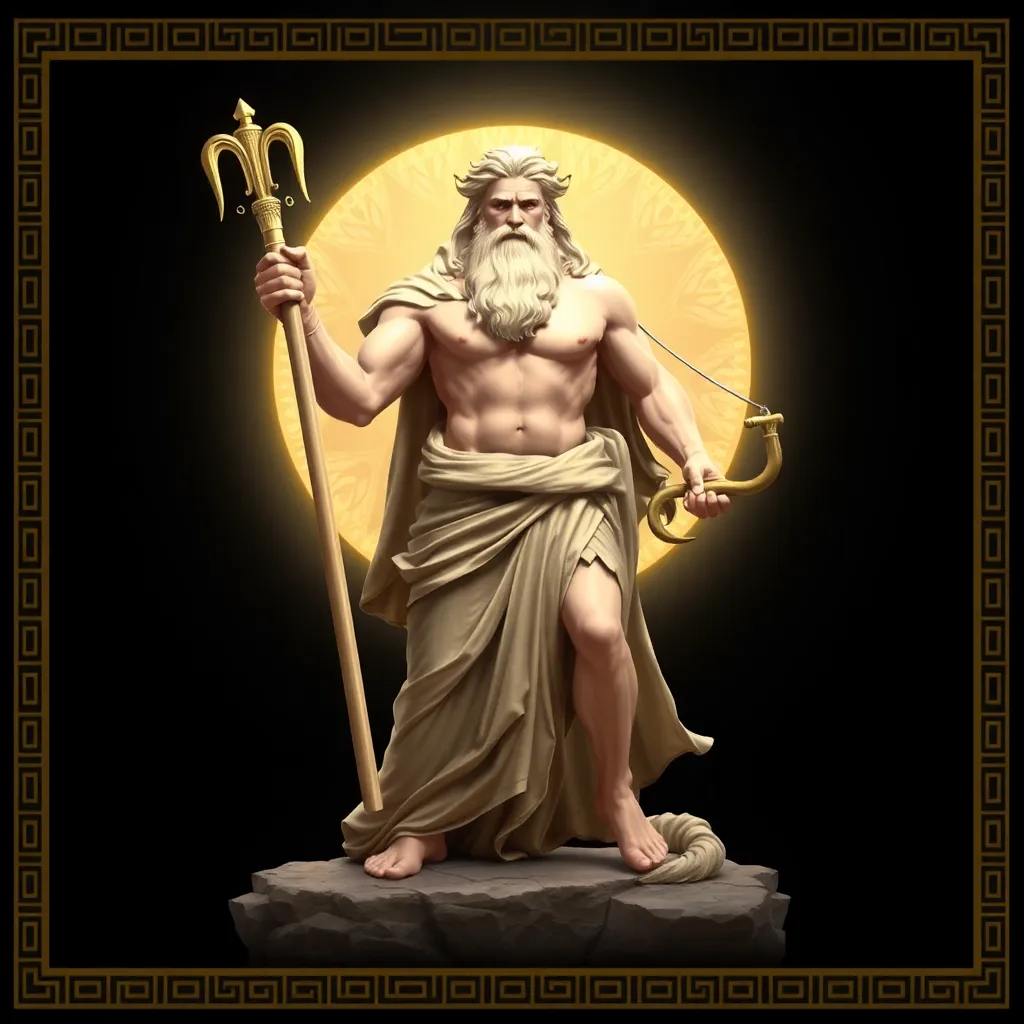Zeus and His Role in the Eleusinian Mysteries
I. Introduction
The Eleusinian Mysteries were among the most significant religious rites in ancient Greece, centered around the worship of Demeter and Persephone. These mysteries offered initiates profound insights into life, death, and rebirth, encapsulating the agricultural cycles that were vital to Greek society.
In Greek mythology, Zeus stands as the king of the gods, wielding immense power and influence over both divine and mortal realms. His role in the pantheon is crucial not only for understanding the relationships between deities but also for grasping the broader cultural implications of ancient Greek religion.
This article aims to explore the multifaceted role of Zeus within the context of the Eleusinian Mysteries, shedding light on his influence over rituals, symbolism, and theological significance.
II. Historical Context of the Eleusinian Mysteries
The Eleusinian Mysteries originated in the town of Eleusis, near Athens, and date back to at least the 15th century BCE. They were celebrated annually and involved a series of rites that honored the goddess Demeter and her daughter Persephone. The Mysteries were of immense significance, offering a promise of life after death and a deeper understanding of the human condition.
Key figures in the Eleusinian Mysteries included:
- Demeter: The goddess of agriculture and fertility, central to the Mysteries.
- Persephone: Demeter’s daughter, whose abduction by Hades symbolizes seasonal change.
- Hades: The god of the underworld, representing the afterlife.
The cultural landscape of ancient Greece was rich with religious festivals and rites, each serving to strengthen communal bonds and reinforce societal values. The Eleusinian Mysteries were unique in their focus on personal transformation and enlightenment.
III. Zeus in Greek Mythology
Zeus is often depicted as the ruler of Mount Olympus and the overseer of all gods and humanity. As the god of the sky and thunder, he wielded the thunderbolt as his primary weapon, symbolizing his authority and power.
Key attributes and symbols of Zeus include:
- The thunderbolt
- The eagle, representing sovereignty
- The oak tree, symbolizing strength and endurance
Zeus’s relationships with other gods and mortals are complex. He fathered many deities and heroes, often engaging in affairs that resulted in significant mythological narratives. His relationships reflect themes of power, justice, and retribution, as he maintained order among both gods and men.
IV. Theological Significance of Zeus in the Eleusinian Mysteries
In the Eleusinian Mysteries, Zeus plays a crucial role in the myth of Demeter and Persephone. When Persephone is taken by Hades, it is Zeus who ultimately mediates the situation, allowing for her return to the surface world. This act symbolizes the cyclical nature of life and death, reinforcing the theme of rebirth that is central to the Mysteries.
Zeus is also connected to agricultural fertility, a vital aspect of the Mysteries. As a deity who governs weather and natural phenomena, his favor is essential for a bountiful harvest. The Mysteries emphasized the relationship between divine favor and agricultural abundance, highlighting the interconnectedness of the gods and human existence.
Furthermore, Zeus’s influence on themes of life, death, and rebirth is evident in the initiation rituals. Initiates sought his blessing for a prosperous afterlife, invoking his name in prayers and offerings during the ceremonies.
V. Rituals and Practices Involving Zeus
The Eleusinian Mysteries included various rituals that invoked Zeus, especially during the initiation process. These rituals often included:
- Prayers and hymns dedicated to Zeus, seeking his guidance and protection.
- Offerings of barley, wine, and sacrificial animals as a sign of devotion.
- Oaths taken by initiates to uphold the sacred secrets of the Mysteries.
The significance of oaths and offerings to Zeus cannot be overstated. They formed a vital part of the initiatory experience, emphasizing the bond between the worshippers and the divine. The role of Zeus in the initiation process underscored his importance in ensuring the spiritual journey of the initiates.
VI. Artistic Representations of Zeus in Eleusinian Art
Artistic representations of Zeus in Eleusinian artifacts provide valuable insights into how he was perceived within the context of the Mysteries. These depictions often highlight his role as a protector and overseer of the rites.
Analysis of iconography related to Zeus and the Mysteries reveals:
- Imagery of Zeus with agricultural symbols, linking him to the fertility themes of the Mysteries.
- Depictions of Zeus alongside Demeter and Persephone, emphasizing their interconnections.
- Artistic motifs that reflect the solemnity and sacred nature of the initiation process.
The impact of these representations on understanding the Mysteries is profound, as they illustrate the ways in which Zeus’s influence permeated the rituals and beliefs of the participants.
VII. Scholarly Interpretations of Zeus’s Role
Scholarly perspectives on Zeus’s involvement in the Eleusinian Mysteries vary widely. Some scholars posit that Zeus played a primary role in the Mysteries, while others argue that his influence was secondary to that of Demeter and Persephone.
Key debates include:
- The extent to which Zeus’s role as a fertility god is emphasized compared to that of Demeter.
- Interpretations of mythological texts that suggest a more complex relationship between Zeus and the Mysteries.
- The evolution of interpretations over time, reflecting changing cultural and religious landscapes.
This ongoing discourse highlights the richness of the Mysteries and the various dimensions of Zeus’s significance within them.
VIII. Conclusion
In summary, Zeus’s role in the Eleusinian Mysteries is multifaceted, intertwining themes of agriculture, life, death, and rebirth. His influence permeated the rituals, artistic representations, and theological underpinnings of these sacred rites, illustrating the interconnectedness of the divine and human experience.
The legacy of the Eleusinian Mysteries continues to resonate in modern times, serving as a reminder of the deep spiritual yearnings that characterize human existence. As we reflect on the intersection of mythology and religious experience, Zeus remains a central figure in understanding the complexities of ancient Greek spirituality.




